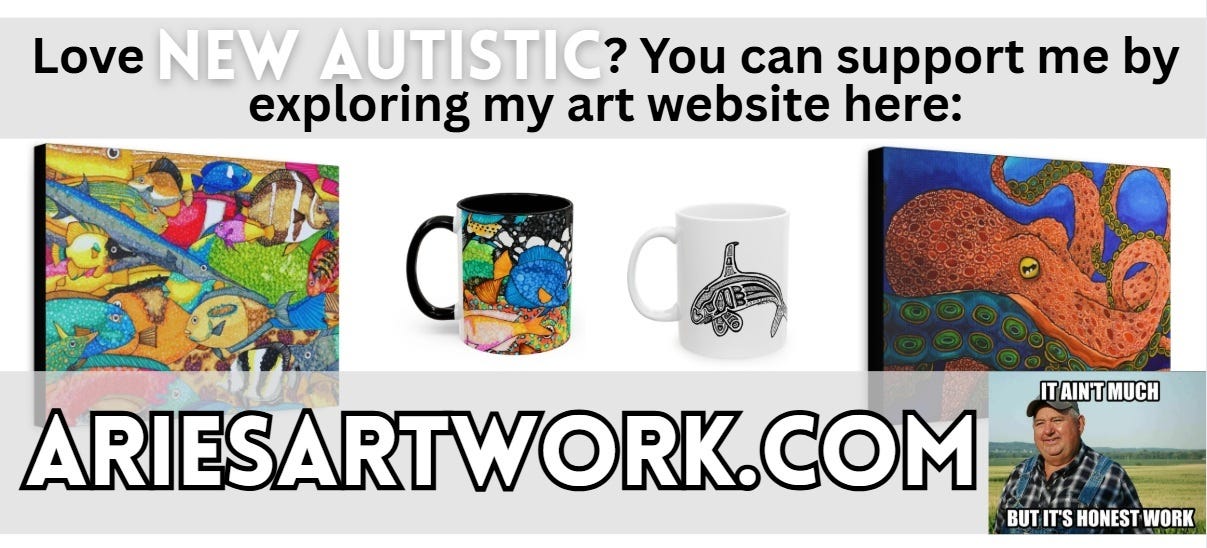Landing in Holland: The Grief of a Late Diagnosis
Grieve the Past, But Embrace the Future
I’ve been listening to Christiane Wolf’s Outsmart Your Pain recently thanks to a bout of sciatica, and the author made an analogy that I think also applies to a late autism diagnosis. Of course, she was talking about a diagnosis of some sort of chronic pain condition (which is not uncommon among autistics), but I think the analogy applies to a late autism diagnosis as well. I will expound on Wolf’s analogy below.
I Dream of Italy
Imagine that you’ve always wanted to go to Italy ever since you were a child. You did a school project on Rome and the Colosseum, on gladiator fights and crossing the Rubicon, and ever since then, you’ve always dreamed of visiting Italy one day. You want to see it all: from the Vatican to the vineyards.
Then, as an adult, you’re given the opportunity to do so. You spend months, if not years preparing yourself for the trip, learning a bit of Italian to get yourself around, reading up on all the best sights to see, planning out your path around the Italian peninsula to make sure you hit all those landmarks and towns, exchanging your US dollars for euros, planning your flights, hotels, and rental cars… Suffice it to say, you are as prepared as anyone can be!
You board the plane, get settled, and fall asleep on your way there. You dream of all of the sights you’ll see in the coming weeks. A bumpy landing wakes you, and as you open your eyes and remember that your plane has just landed, your excitement peaks. Yes, you’ve finally made it! All those dreams and plans you’ve made over the years and decades have finally come to fruition! All that hard work has finally paid off! You’ve finally arrived!
Over the intercom, the muffled and distorted voice of the captain says, “Welcome to Holland!”
“Welcome to Holland!”
You blink, confused. Holland? Wasn’t this a flight to Italy? You check your ticket, and it reads “Italy.” What’s the captain talking about? Perhaps you misheard the announcement.
You get the attention of one of the flight attendants who informs you that you are indeed in Holland and there is no mistake, nor is this a joke. “You’re in Holland, and you’re staying in Holland,” you’re told over and over again. No amount of arguing or trying to fix the situation gets you anywhere, and after going at it for a while, you get frustrated with the flight attendant and deboard the plane. Someone else has to have more information.
In the airport, you try asking and reasoning with other workers, but they all tell you the same thing: “You’re in Holland, and you’re staying in Holland.” Many try to reassure you that there are plenty of great things to do in Holland, and that there are plenty of interesting people living in Holland.
But… What About Italy?
After hours and days of arguing and crying and reasoning, you finally give in, accepting your fate. You’re in Holland, and in Holland you’ll stay. You acknowledge that, yes, there are plenty of amazing things about Holland, and it’s not like you were averse to visiting at some point; you just were really excited about finally seeing Italy, and all of your plans and preparations were for Italy.
You spent months learning some Italian. You don’t know any Dutch.
You printed out maps and guides of Rome. You have no maps or guides for Amsterdam.
You wanted to see the Colosseum — not the Van Gogh Museum.
You’re woefully ill-prepared for a destination that wasn’t even on your radar. Through no fault of your own, you’re thrown into this new and foreign chaotic situation, struggling to figure out what is going on and how to adapt and survive.
While you recognize that there is plenty of beauty in Holland — Dutch is a complex and intriguing language, Amsterdam is a beautiful city, and the Van Gogh Museum is world-renowned — it’s just… not Italy.
It’s not what you planned for. It’s not what you wanted.
The Grief for What Might’ve Been
In the same way that someone who always wanted to visit Italy and ended up in Holland might be disappointed, many late-diagnosed autistic people feel the same way. We were told throughout our lives by our families (hopefully), society, movies, books, and shows: “You can do anything you set your mind to!”
But for those people who have physical or intellectual disabilities or disorders, that simply isn’t true. In the contemporary era, someone with an IQ of 50 is not going to be an astrophysicist. Someone with no legs is not going to play in the NBA.
And that’s okay. It’s okay to be in Holland.
It’s also okay to grieve for all of the work, plans, and preparations you put into going to Italy. It’s okay to grieve the loss of what might’ve been if you hadn’t landed in Holland — or if you didn’t have autism.
Just remember that Holland has a lot to offer as well.
Thanks for Reading!
Thanks for taking time out of your busy day to spend some time with me! I encourage all of my readers to RISE (Reflect, Improve, Strengthen, & Evolve) with me because healing is a lifelong journey — it’s not always easy, but it’s always worth it. You are loved, cherished, and valued. Don’t ever let anyone ever convince you otherwise.
My commitment to bringing you FREE, well-researched, and comprehensive content means I spend considerable time and effort writing each article or post without compensation.
Want to Support Me?
The simplest FREE way you can support me is by subscribing, sharing, or leaving a comment:
I believe in keeping my content accessible to everyone, without paywalls, because I know the work I do matters. For that reason, I’m beyond grateful for any financial support! If you'd like to support me and my work, check out my art website at AriesArtwork.com to bring home something unique or find a gift for that special someone in your life:
I’ll see you again when I’ve got a new info-dump for you, my Newtistics Crew!
—Skylar Aries







